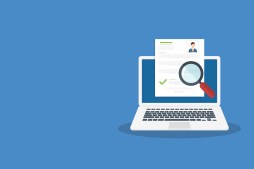The Ultimate Guide to Boosting Your Computer’s Speed
Is your computer running slower than usual? Does it take forever to load programs and open files? If so, you’re not alone. Many computer users experience a decrease in performance over time due to various factors such as software bloat, outdated hardware, and lack of regular maintenance. Luckily, there are several steps you can take to speed up your computer and improve its overall performance. In this ultimate guide, we’ll explore some tried-and-true methods that will help you boost your computer’s speed.
Clean Up Your Hard Drive
One of the main reasons why computers slow down is because of a cluttered hard drive. Over time, files accumulate on your system, taking up precious storage space and causing your computer to run sluggishly. To speed up your computer’s performance, it’s important to clean up your hard drive regularly.

Start by deleting unnecessary files and folders that you no longer need. These can include old documents, downloads, temporary files, and even unused applications. Use the built-in disk cleanup tool on Windows or third-party software like CCleaner to easily identify and remove these unnecessary files.
Additionally, consider moving large files such as videos or music to an external storage device or cloud storage service. This will free up space on your hard drive and allow your computer to run more efficiently.
Optimize Your Startup Programs
When you turn on your computer, it loads numerous programs in the background that are set to start automatically with every boot-up. Having too many startup programs can significantly slow down your computer’s performance as it takes longer for the operating system to load all these applications.
To optimize your startup programs, review the list of applications that start automatically when you turn on your computer. Disable any unnecessary programs from starting up by accessing the Task Manager (Windows) or System Preferences (Mac). By reducing the number of startup programs, you’ll notice a significant improvement in your computer’s speed during boot-up.
Upgrade Your Hardware
Sometimes, the sluggish performance of your computer can be attributed to outdated hardware components. If you’ve tried cleaning up your hard drive and optimizing your software but still experience slow speeds, it may be time to consider upgrading certain parts of your computer.
Upgrading your RAM (Random Access Memory) is often a cost-effective way to boost your computer’s performance. RAM allows your computer to run multiple programs simultaneously, and increasing its capacity can result in faster processing speeds. Similarly, upgrading to a solid-state drive (SSD) instead of a traditional hard drive can significantly improve the speed at which data is accessed and transferred.
For more advanced users or those who require high-performance computing, upgrading other hardware components such as the processor or graphics card may be necessary. However, it’s important to note that hardware upgrades can be more expensive and may require professional assistance.
Perform Regular Maintenance
To ensure that your computer continues to run smoothly and efficiently, it’s essential to perform regular maintenance tasks. These tasks include updating your operating system and software applications, running antivirus scans for malware detection and removal, and defragmenting or optimizing your hard drive.
Keeping your operating system and software up-to-date ensures that you have access to the latest bug fixes and performance improvements. Antivirus scans are crucial for keeping your computer secure from viruses and malware that can significantly impact its speed. Lastly, defragmenting or optimizing your hard drive rearranges fragmented files on the disk, allowing for faster access times.
By incorporating these regular maintenance tasks into your routine, you’ll not only speed up your computer but also prolong its lifespan by preventing potential issues from arising.
Conclusion:
In this ultimate guide to boosting your computer’s speed, we’ve explored various methods that can help improve its overall performance. From cleaning up your hard drive and optimizing startup programs to upgrading hardware components and performing regular maintenance, these steps will ensure that your computer runs faster and more efficiently. Remember, a speedy computer not only enhances productivity but also provides a better user experience overall.
This text was generated using a large language model, and select text has been reviewed and moderated for purposes such as readability.











